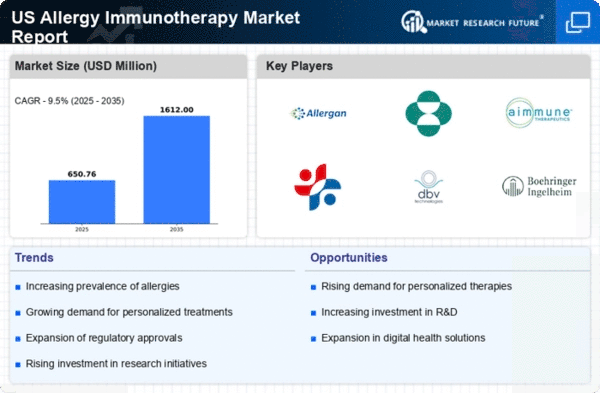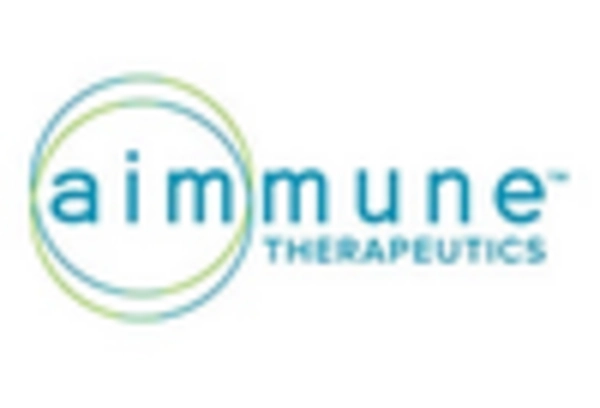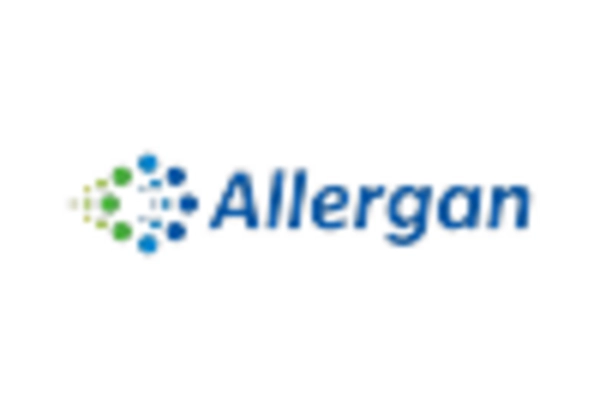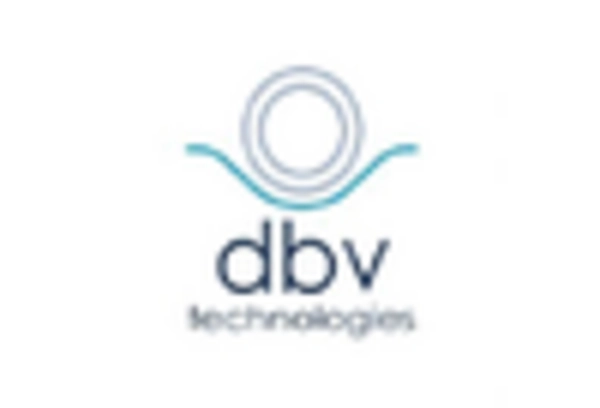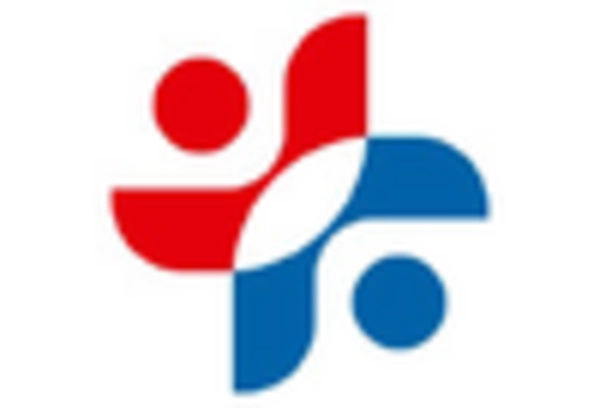Rising Healthcare Expenditure
The increase in healthcare expenditure in the US is a significant driver for the allergy immunotherapy market. With healthcare spending projected to reach approximately $6 trillion by 2027, there is a growing investment in allergy treatments, including immunotherapy. This financial commitment from both public and private sectors facilitates the development and distribution of advanced immunotherapy products. Patients are more likely to seek out these treatments as they become more affordable and accessible. Consequently, the allergy immunotherapy market stands to benefit from this upward trend in healthcare spending, which is likely to enhance patient access to effective allergy management solutions.
Increasing Awareness of Allergies
The growing awareness of allergies among the population is a crucial driver for the allergy immunotherapy market. As more individuals recognize the symptoms and implications of allergies, there is a corresponding increase in demand for effective treatment options. Educational campaigns and healthcare initiatives have contributed to this awareness, leading to a rise in consultations with allergists. In the US, it is estimated that around 30% of adults and 40% of children suffer from allergic conditions, which underscores the potential market size. This heightened awareness is likely to propel the growth of the allergy immunotherapy market as patients seek long-term solutions to manage their allergies.
Regulatory Support for Immunotherapy
Regulatory bodies in the US have shown increasing support for allergy immunotherapy, which serves as a significant driver for the market. The approval of new immunotherapy products and treatment protocols by the FDA has encouraged manufacturers to invest in research and development. This regulatory backing not only enhances the credibility of immunotherapy but also fosters innovation within the allergy immunotherapy market. For instance, the introduction of sublingual immunotherapy has expanded treatment options, making it more accessible to patients. As regulations continue to evolve favorably, the allergy immunotherapy market is expected to experience robust growth.
Advancements in Research and Development
Ongoing advancements in research and development are propelling the allergy immunotherapy market forward. Innovations in treatment methodologies, such as the development of new allergen extracts and delivery systems, are enhancing the efficacy and safety of immunotherapy. Research institutions and pharmaceutical companies are increasingly collaborating to explore novel approaches to allergy treatment, which may lead to breakthroughs in the field. The allergy immunotherapy market is likely to see a surge in new products and therapies as a result of these R&D efforts, potentially improving patient outcomes and expanding treatment options.
Growing Demand for Alternative Therapies
The rising demand for alternative therapies is influencing the allergy immunotherapy market significantly. Patients are increasingly seeking holistic and long-term solutions to manage their allergies, moving away from traditional symptomatic treatments. This shift in patient preference is driving interest in immunotherapy, which offers a more sustainable approach to allergy management. As awareness of the benefits of immunotherapy grows, more individuals are likely to consider it as a viable option. This trend suggests a promising future for the allergy immunotherapy market, as it aligns with the evolving expectations of patients seeking comprehensive care.


